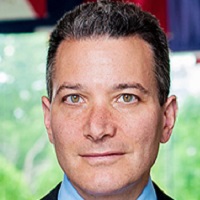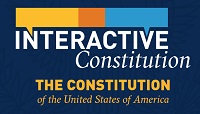The First Amendment says that Congress “shall make no law… abridging the freedom of speech.” Over the years, the Supreme Court has read that to mean that the government, more broadly, cannot limit free speech. At the same time, the Court has shown great deference to laws intended to protect religious, racial, and sexual minorities. Some scholars have argued that hateful speech should face the same level of scrutiny given to libel and true threats.
Does the First Amendment protect hate speech? Can Courts meaningfully decide what counts as hate speech and what does not?
 Shannon Gilreath is Professor of Law and Professor of Women's, Gender, and Sexuality Studies at Wake Forest University Law School. His books include Sexual Politics: The Gay Person in America Today (2006) and The End of Straight Supremacy: Realizing Gay Liberation (2011).
Shannon Gilreath is Professor of Law and Professor of Women's, Gender, and Sexuality Studies at Wake Forest University Law School. His books include Sexual Politics: The Gay Person in America Today (2006) and The End of Straight Supremacy: Realizing Gay Liberation (2011).
 Keith Whittington is William Nelson Cromwell Professor of Politics at Princeton and author of the upcoming book, Why Free Speech is Central to the Mission of a University.
Keith Whittington is William Nelson Cromwell Professor of Politics at Princeton and author of the upcoming book, Why Free Speech is Central to the Mission of a University.
 Jeffrey Rosen is the President and Chief Executive Officer of the National Constitution Center, the only institution in America chartered by Congress “to disseminate information about the United States Constitution on a nonpartisan basis.” He is also a professor at The George Washington University Law School, and a contributing editor for The Atlantic.
Jeffrey Rosen is the President and Chief Executive Officer of the National Constitution Center, the only institution in America chartered by Congress “to disseminate information about the United States Constitution on a nonpartisan basis.” He is also a professor at The George Washington University Law School, and a contributing editor for The Atlantic.
Additional Resources
 Our Interactive Constitution is the leading digital resource about the debates and text behind the greatest vision of human freedom in history, the U.S. Constitution. Here, scholars from across the legal and philosophical spectrum interact with each other to explore the meaning of each provision of our founding document.
Our Interactive Constitution is the leading digital resource about the debates and text behind the greatest vision of human freedom in history, the U.S. Constitution. Here, scholars from across the legal and philosophical spectrum interact with each other to explore the meaning of each provision of our founding document.
For More Information
Continue today’s conversation on Facebook and Twitter using @ConstitutionCtr.
Sign up to receive Constitution Weekly, our email roundup of constitutional news and debate, at bit.ly/constitutionweekly.
Please subscribe to We the People and our companion podcast, Live at America’s Town Hall, on iTunes, Stitcher, or your favorite podcast app.
We the People is a member of Slate’s Panoply network. Check out the full roster of podcasts at Panoply.fm.
The Constitution Center is offering CLE credits for select America’s Town Hall programs! In-person credit is now available in Pennsylvania, with more states to come soon.
And finally, despite our congressional charter, the National Constitution Center is a private nonprofit; we receive little government support, and we rely on the generosity of people around the country who are inspired by our nonpartisan mission of constitutional debate and education. Please consider becoming a member to support our work, including this podcast.








